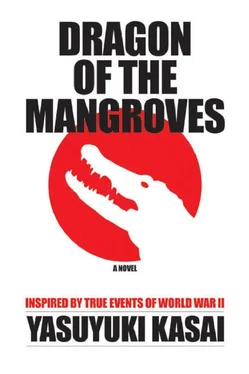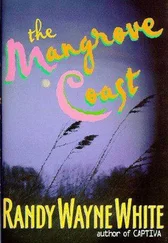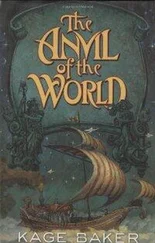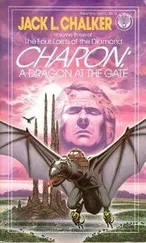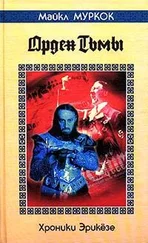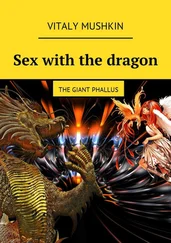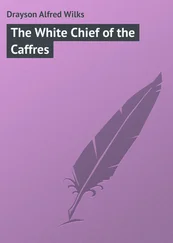Overwhelmed by the commanding scene, he was struck dumb. The next moment, a muzzle fire flashed on a battleship, and, as soon as powder smoke rose into the blue sky, a roaring sound reached the bunker and jolted the ground.
Then all other warships also started firing. Shells were concentrated on a hillside south of the town. It was exactly around where their forces had occupied a position, but the consecutive explosions were so fierce that Kasuga could spare no time for worrying about them now. Shortly thereafter, an enormous fireball went up over the hill. The shells had probably hit an arsenal.
The fire got bigger and higher with tremendous energy, like it was scorching the sky. Against the backdrop of the pillar of flame, which reminded him of hell fire, innumerable palm trunks flew about as if cut away by an invisible, huge sickle. Kasuga gazed at the scene helplessly.
Mixed with the deafening sounds of explosions, a drone of aircraft suddenly reached his ears. He turned to the left and found three Lockheed P-38 twin-engine interceptors ripping the sky. They were rushing toward Kyaukphyu in a V formation.
Tomita shouted loudly, “How low they fly! All right, men! Go back to the gun. We can get them if things go like this.”
Kasuga returned to his senses. It was no time to be in astonishment. He focused and ran after Tomita, who had already dashed out from the bunker.
Since the Imperial Army had drafted him, he had to distinguish himself and get a decoration, at least. Otherwise, he couldn’t face his parents or the neighbors, who waved the Rising Sun flags with ardor to send him off. He remembered promising himself he must be a good warrior when he passed through a gate of the infantry regiment. And he never forgot feeling pride when he joined the machine gun company, the lion of infantry. He had worked hard at the drills since then and had done well at every target practice. His efforts now made him a number four gunner, the best marksman of a squad.
As soon as the three got back to the machine gun position, the other members of the squad all ran up to them together. They had been puzzled over the disappearance of not only the leader, but also the marksman and the loader in this emergency. Everybody was relieved to see the three. Tomita immediately began giving orders. “Enemy pilots are flying their planes close to the ground, so we can’t shoot them here. Prepare for a position change! Detach the antiaircraft adapter and carry the gun to the west bunker.”
New sections of P-38 interceptors appeared in the sky, one after another, while they were furiously disassembling the machine gun. Tomita counted the planes and urged his troops forward. “Four enemy flying sections. Twelve Lockheed in all. Now we down them all. Go!”
Ondaw Coast spread below the enemy planes having already opened fire. An antitank ditch had been dug in the sand beach to prevent enemy landing. And behind it, the hem of the jungle bristled with many antiaircraft guns defiantly pointed at the sky. Of course these were all mock guns made of palm wood. The Army had no money to purchase those modern weapons, or ships to transport guns if it had any. However, such bluffs seemed to have some effect. Interceptors kept circling just above the beach and strafing intentionally around false positions near the mock guns again and again.
Tomita had judged it correctly. The prearranged position didn’t suit horizontal shooting, which was hindered by standing trees. The Army could clearly see the state of circling enemy planes from a slit of the west bunker, into which they had carried the machine gun. Everybody could see the faces of the pilots wearing goggles, they flew so close. Therefore, Kasuga thought it would be easy to hit them. All members moved rapidly and completed the position change in no time.
Every gunner had memorized the motion of setting a gun and firing through a repetitive training exercise named “Bolt Action Dance.”
“Prepare for firing!” Just after Tomita’s command, Hirono inserted an ammunition strip loaded with thirty live bullets into the always meticulously polished model ninety-two heavy machine gun. Its cooling fins shone and radiated genu-ine functional beauty, receiving the light of the Indian Ocean coming through the slit. Kasuga held the grips firmly and put his thumbs on the firing button. He found a P-38 coming toward them clockwise through the rear sight. If it would keep going at that rate, it should expose its belly to their gun. Tomita was squatting behind him and also seeing the same thing. Now, Kasuga could discharge 7.7-millimeter armor-piercing ammunition of convergent trajectory at the target anytime. At that moment, an unexpected shrieking voice burst into the bunker.
“Hey, don’t shoot it!”
Second Lieutenant Jinno, the platoon commander, came jumping into the
bunker. No one knew where he had been up to then. His face was white, and the hilt of sword was shaking in his hand. He bawled out in front of the soldiers.
“What do you think you’re doing? You unhelpful pinheads! If you shoot, they find our position. Can’t you make out such a simple thing? You retards! How long have you been in the machine gun company? Huh?”
Jinno looked infuriated. He was notorious for his short temper. Having a tendency to get angry over trivial matters, he used to give them “binta,” a hard slap, and sometimes forced them to recite “Gunjin-Chokuyu,” the Imperial rescript to soldiers and sailors. Everyone nicknamed him “Binchoku,” a compound of binta and Gunjin-Chokuyu, behind his back and avoided him.
Kasuga now believed the possibility of an enemy landing was strong. Disclo-sure of positions was only a matter of time. Comrades in Kyaukphyu were moan-ing under severe attacks. The time to shoot was now or never. He became indignant and looked back to Tomita, who was grinning in a self-satisfied manner. Then Tomita tightened his mouth, faced Jinno, and said, “I wasn’t going to shoot, Lieutenant. I moved the gun into the bunker so the enemies wouldn’t spot it from the air. It’s my fault for not having gotten your permission to change positions, sir.”
Jinno showed some embarrassment and murmured, “Well, I was thinking exactly the same. Actually I also came here to order you a position change. You’ve made a good decision, Sarge.”
Then Jinno disappeared again. He looked uncertain of this war situation. If not for Tomita’s quick wit, Jinno would probably have pulled Kasuga or someone else out of place and given him double binta. Kasuga reckoned that Tomita excelled over Jinno in experience and shrewdness.
Tomita grinned lightheartedly again, indifferent to his admiration, and stated,
“A puking excuse suits Binchoku. Now I can’t help it. He has nothing better to do than to keep me as meek as a lamb here.”
After a while, a buzzing low-pitched sound came from nowhere. Everyone had heard it many times. Kasuga looked for the western sky. More than thirty aircraft came into view at once. A flock of Consolidated B-24 Liberators—examples of expensive, tough, Allied heavy bombers—spread over the sky. Allowing them no time to feel overwhelmed, everyone erupted into a commotion. Kasuga heard everybody around him shout.
“That’s too bad! Here come the damned Consoli!”
“Everybody! Evacuate immediately! Bombers coming!”
“Shelter the machine gun! Get into the cave! Hurry up, you dimwit!”
Other soldiers jumped into the narrow bunker, one after another, while members of Tomita Squad were dragging the machine gun. Shortly, a sound like distant thunder came. Kasuga supposed the first bomb had just reached the ground.
Then another followed. Gradually the sounds became incessant, louder, and closer. Soon an incredibly loud reverberation came. And the loudness like a drum performance at a Shinto festival wrapped up everything. Dry soil powder began falling on them from gaps in the logs beneath the ominously squeaking ceiling.
Читать дальше
